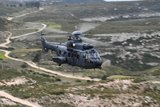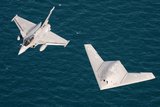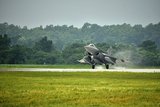Northrop Grumman to support Advanced Hawkeye glass cockpit
US Naval Air Systems Command (NAVSEA) has ordered $34.71 million worth of engineering services from Northrop Grumman to support the glass cockpit design programme for the E-2D Advanced Hawkeye.
Work includes non-recurring engineering for requirements development and systems engineering technical reviews and certification planning; initial requirements change requests; and a procurement strategy source selection package.
In addition, according to a DoD announcement on 3 August, Northrop Grumman will provide a performance-based navigation certification plan; initial system safety; cyber; programme protection and exportability analysis; an integrated master schedule; and other associated technical deliverables.
Work is expected to be completed by January 2022.
As part of our promise to deliver comprehensive coverage to our Defence Insight and Premium News subscribers, our curated defence news content provides the latest industry updates, contract awards and programme milestones.
Related Equipment in Defence Insight
More from Air Warfare
-
![Scaling for diverse fleet needs: How many CCA will be acquired per crewed aircraft?]()
Scaling for diverse fleet needs: How many CCA will be acquired per crewed aircraft?
There is currently no industry standard in the ratio of uncrewed to crewed aircraft. Because collaborative combat aircraft vary widely in capability and crewed-uncrewed teaming availability, while country-specific requirements vary, it is unlikely that a single CCA configuration will meet all operational needs.
-
![Focus on economy over capability highlights the cost imperative for CCA success]()
Focus on economy over capability highlights the cost imperative for CCA success
Striking the right balance between cost and capability is likely to become more crucial in the increasingly competitive collaborative combat aircraft market. Shephard’s special CCA market report examines where the opportunities lie for suppliers.
-
![France and India secure long-term defence roadmap built on shared production]()
France and India secure long-term defence roadmap built on shared production
Expanded fighter jet and missile production, next-generation engine cooperation and helicopter assembly deals have all been struck between the two countries, signalling a strengthening bilateral partnership between France and India.
-
![L3Harris begins work on South Korean AEW&C aircraft, eyes further international opportunities]()
L3Harris begins work on South Korean AEW&C aircraft, eyes further international opportunities
The company remains upbeat about its Indo-Pacific and European prospects, with its AERIS X system onboard a Bombardier 6500 proving an attractive option for air forces’ growing AEW&C needs.
-
![Saudi Arabia air report: The world’s fourth-largest UAV market seeks to strengthen domestic industry]()
Saudi Arabia air report: The world’s fourth-largest UAV market seeks to strengthen domestic industry
With $9.18 billion in uncontracted programmes — including a potential multi-billion-dollar MQ-9B deal — Saudi Arabia’s UAV sector is poised for significant further growth and industrial expansion.
























